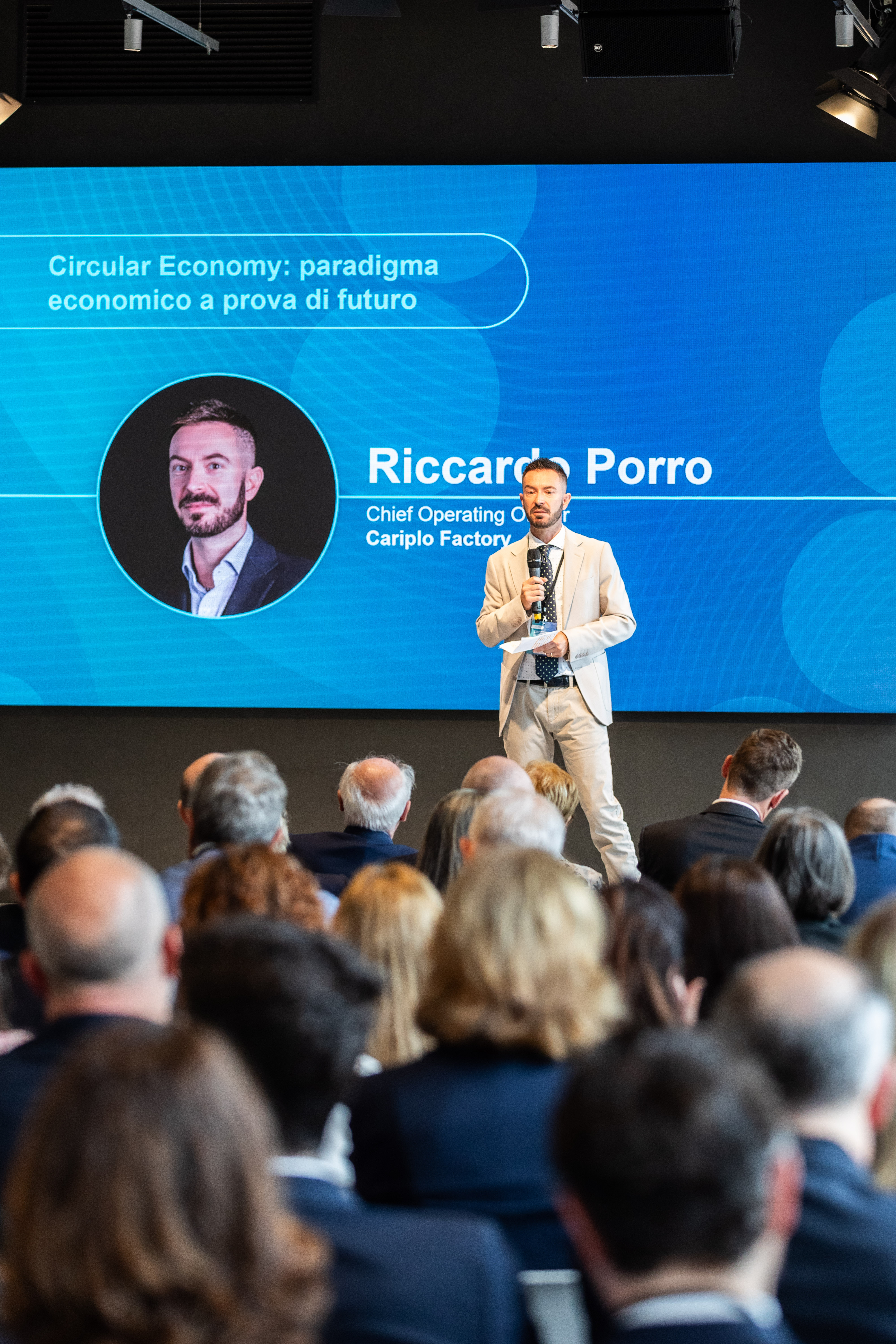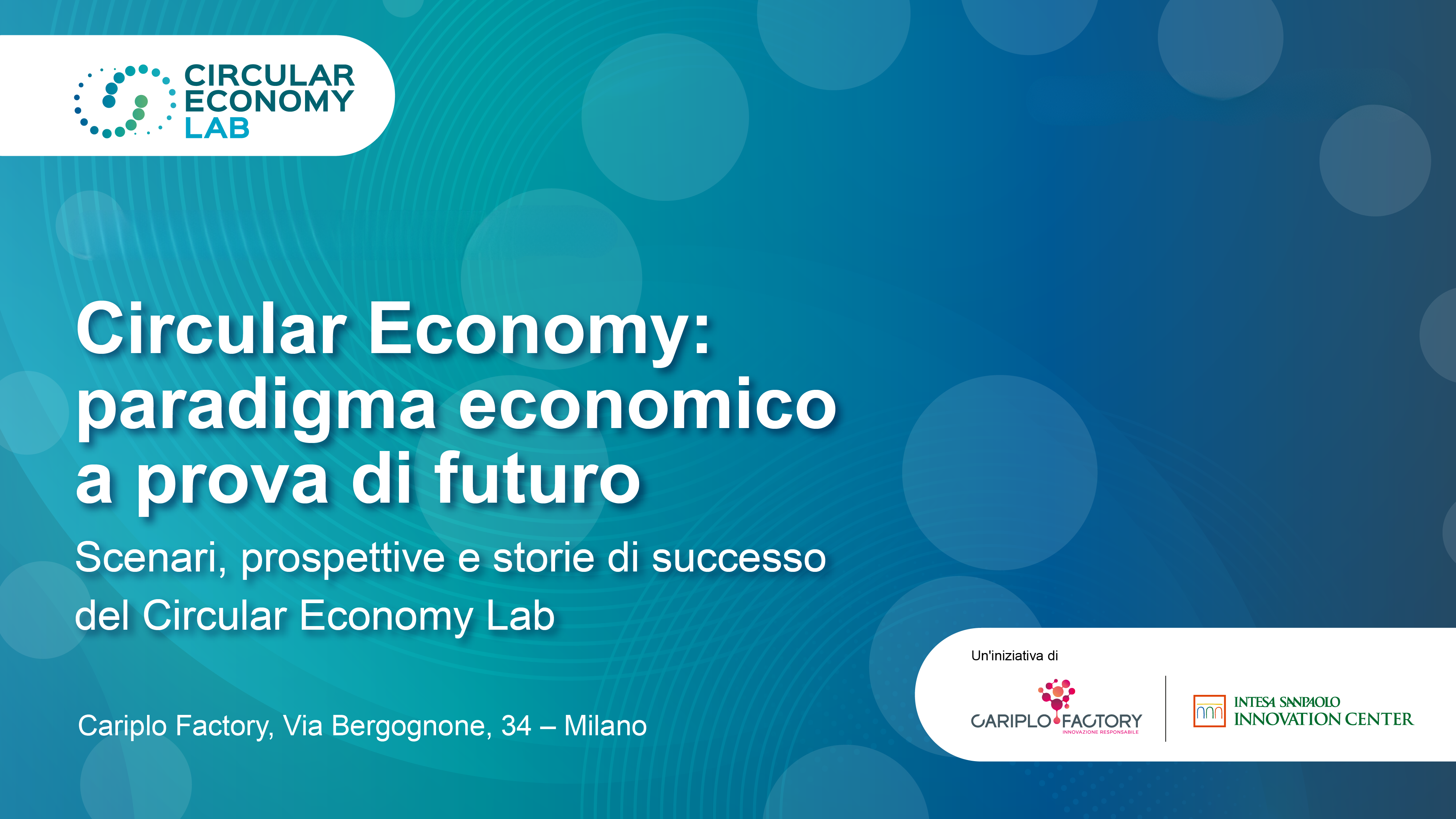
Circular Economy: A Future-Proof Economic Paradigm
In a Europe that places ecological and digital transition at the heart of its industrial policies, the circular economy is emerging as a key lever for building a more competitive, resilient, and sustainable production system. The Clean Industrial Deal, adopted in February 2025, has definitively established the role of the circular economy as a pillar for decarbonization, reducing dependency on raw materials, and driving innovation.
Fondazione Cariplo and Intesa Sanpaolo have reaffirmed their commitment in this direction by renewing the strategic agreement that revitalizes the Circular Economy Lab (CE Lab), an initiative launched in 2018 through the partnership between Cariplo Factory and Intesa Sanpaolo Innovation Center. Over seven years, the CE Lab has become a national benchmark for circular transition, thanks to an integrated approach based on open innovation, education, and networking: over 20 programs developed, more than 5,000 startups and SMEs assessed, over 60 universities involved, and 2,300 students engaged.
A Forum for Strategic Stakeholders
The initiative brought together businesses, institutions, academia, and the financial sector to reflect on the strategic value of the circular economy and to share concrete experiences of industrial transformation. Following an emotional opening video, institutional greetings were delivered by Claudia Sorlini, Vice President of Fondazione Cariplo, and Paola Angeletti, Chief Sustainability Officer of Intesa Sanpaolo and President of Intesa Sanpaolo Innovation Center. Both emphasized the urgency of promoting regenerative development models, citing the tangible commitment already underway: Fondazione Cariplo has supported around 100 circular economy projects with over €18 million, while Intesa Sanpaolo has provided more than €20 billion in dedicated financing.
Panels and Contributions: Visions and Future Outlooks
The first panel, moderated by Massimiano Tellini, explored regulatory scenarios and economic perspectives in Europe, with contributions from experts such as Jocelyn Blériot (Ellen MacArthur Foundation), Marco Boscolo (Intesa Sanpaolo), Piergiorgio Carapella (Confindustria), and Claudio Zara (Bocconi University). The discussion highlighted a growing awareness that the circular economy is not only an environmental opportunity, but a true industrial driver, capable of attracting investment, mitigating systemic risks, and enhancing the competitiveness of production value chains.
CE Lab Results: Real Impact
In the second part of the event, Enrico Noseda, Daniele Accardi, and Giovanni Bugnotto presented the achievements of the Circular Economy Lab, emphasizing how open innovation and venture building can guide the transformation of business models in a circular direction. A notable example is the Environment Mapping project developed in collaboration with the Ministry of Economy of the United Arab Emirates.
CE Lab’s New Report: A Groundbreaking Mapping of Circular Innovation in Italy
A key highlight was the presentation of the “Report on Circular Innovation in Italian Startups”, which mapped 827 innovative startups and SMEs. 65% of these initiatives are located in Northern Italy, with Lombardy leading both in number of companies and investment volume (€495 million, equal to 63% of the national total). The report is a strategic tool for guiding resources and policy toward sectors and regions with the greatest transformative potential.
Business Success Stories
During the event, IVECO, Gruppo Iren, Greenthesis, and Aquila Energie shared their journeys toward more sustainable models, supported by the CE Lab and the business divisions of Intesa Sanpaolo. These case studies demonstrated that the circular economy is not merely a regulatory requirement, but a true growth driver, capable of generating economic and social value.
Closing Remarks: A Shared Roadmap
Wrapping up the event, Viviana Bacigalupo, General Manager of Intesa Sanpaolo Innovation Center. and Riccardo Porro, Chief Operating Officer of Cariplo Factory emphasized the importance of building systemic alliances and value chain projects to accelerate the transition.
"The circular economy offers a new development paradigm capable of decoupling the economic and social growth of businesses and regions from the exploitation of finite natural resources, and it requires a systemic transformation of value chains. Intesa Sanpaolo Innovation Center promotes the connection between startups, companies, and institutions so that, through innovation, the circular economy becomes a strategic lever to foster long-term investment programs, supporting the economic and social development of entire territories," said Viviana Bacigalupo, General Manager of Intesa Sanpaolo Innovation Center.
"Accelerating the transition to a circular economy requires a systemic approach and cross-disciplinary skills: it's time to work together by bringing together the know-how and experiences of startups, large companies, local authorities, and competence centers around a shared roadmap," said Riccardo Porro, Chief Operating Officer of Cariplo Factory. "We believe in the importance of investing in high-impact projects that can create momentum for the entire production chain. To tackle this ambitious challenge, we have a powerful tool at our disposal: open innovation. And in particular, Venture Building, which overturns the traditional perspective by focusing the creation and development of new enterprises on the real needs of companies and the market. In this sense, the circular economy is now a decisive lever for strengthening the competitiveness and future positioning of the Italian production system. The concrete commitment of Fondazione Cariplo and Intesa Sanpaolo through the CE Lab goes precisely in this direction, as demonstrated by the results we have achieved together in recent years."
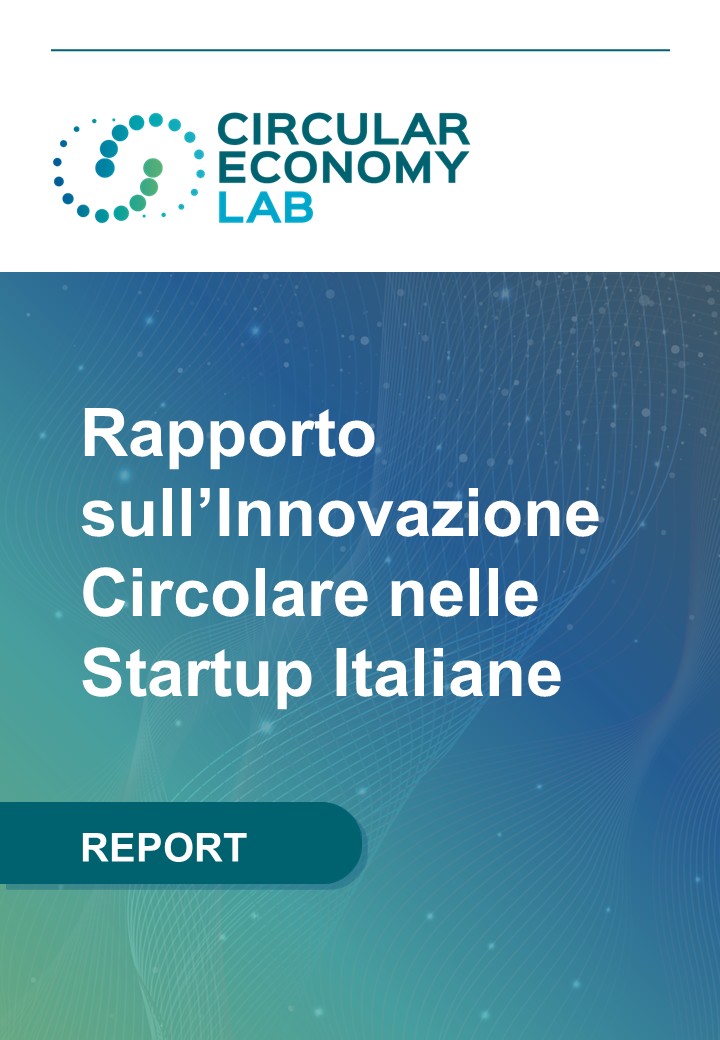
.jpg)
.jpg)
.jpg)
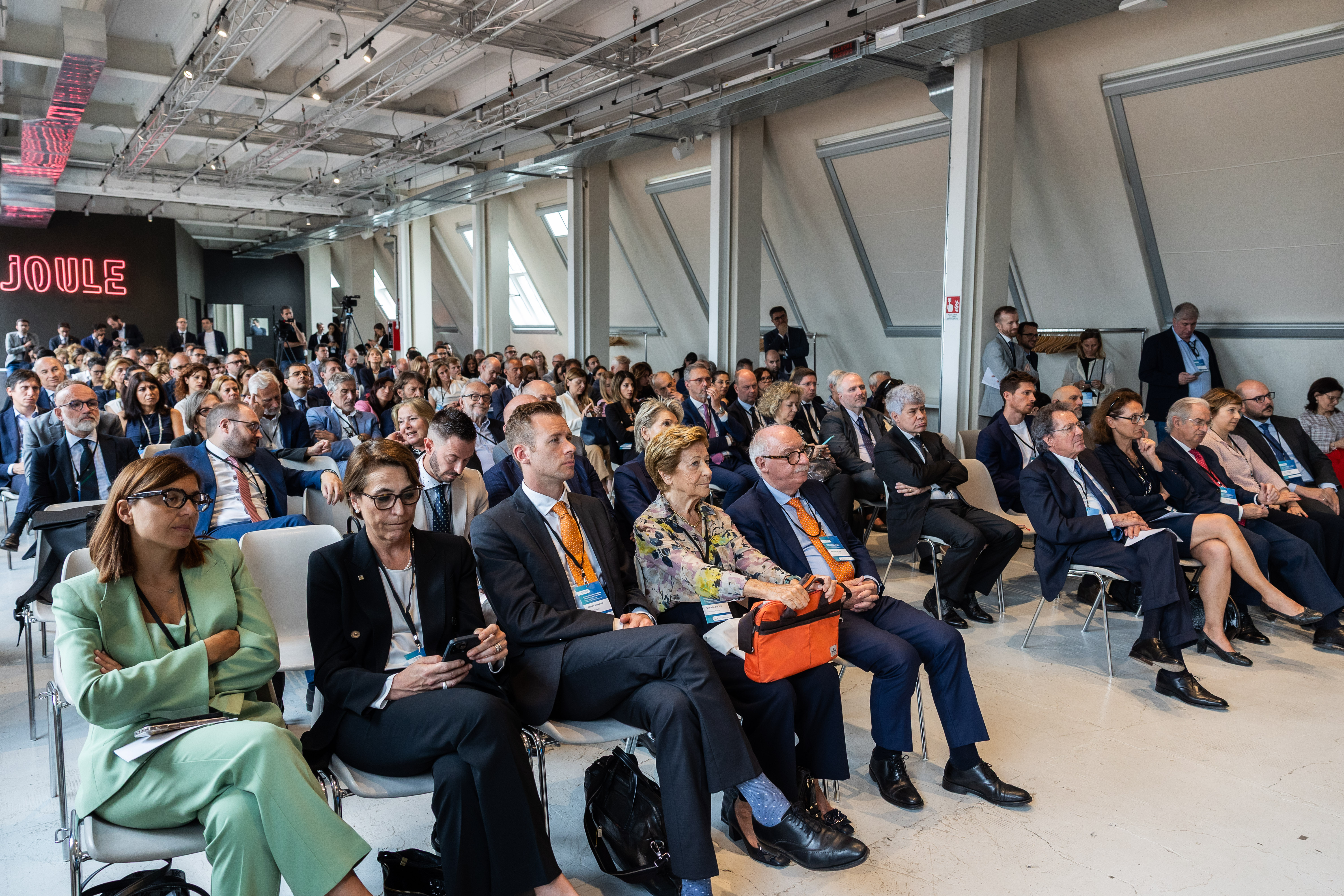
.jpg)
.jpg)
.jpg)
.jpg)
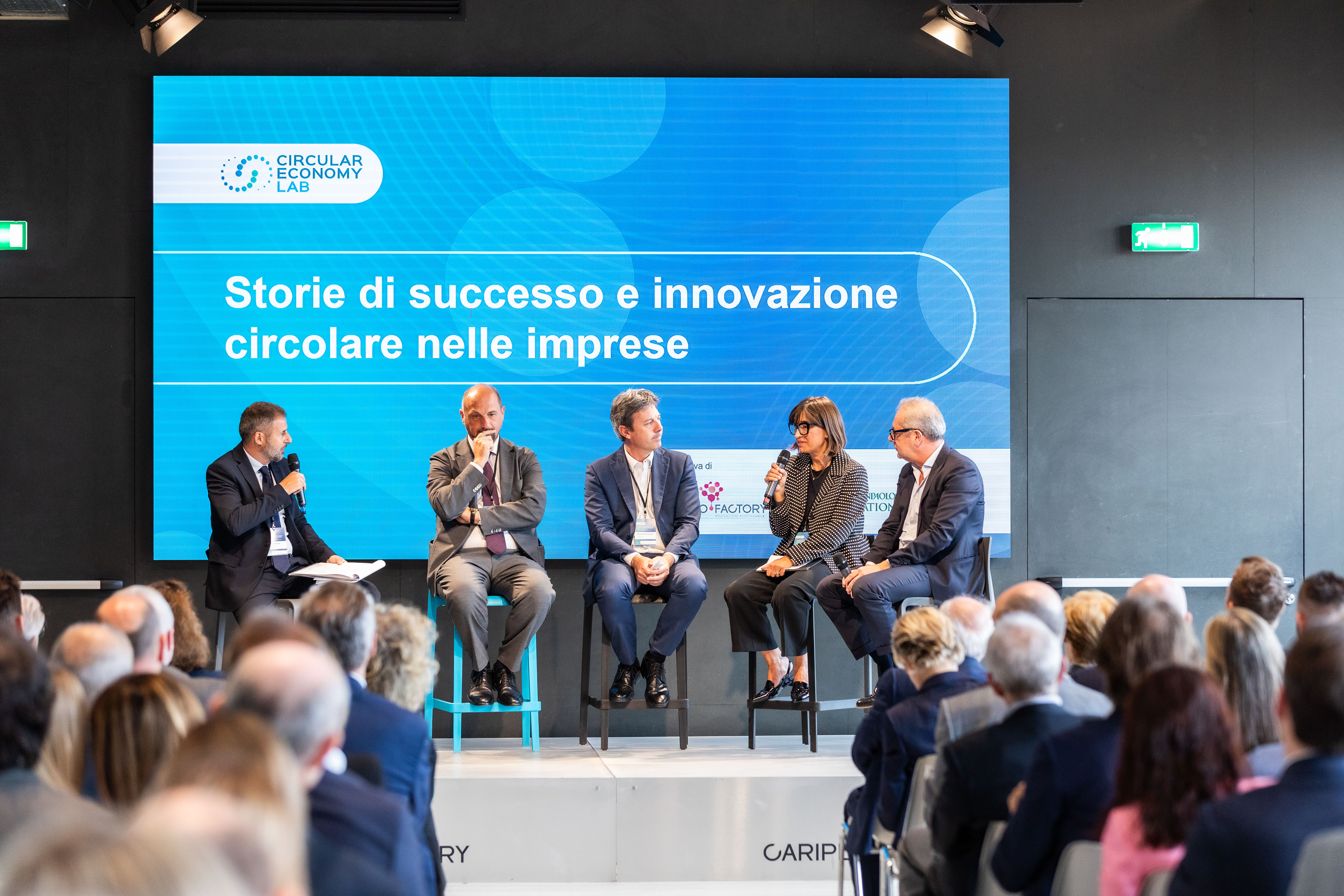
.jpg)
